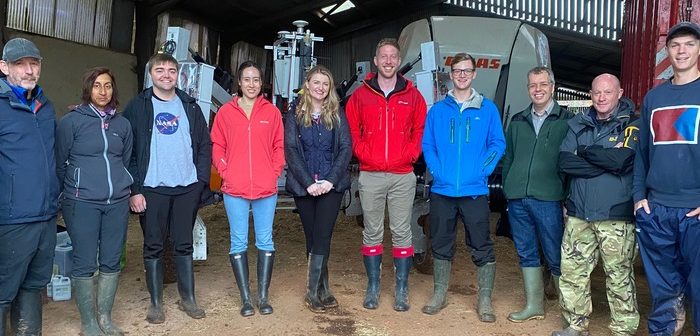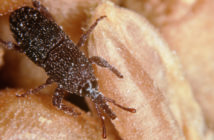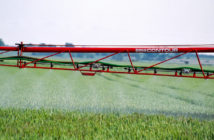Autonomous slug monitoring and precision treatment has been proven possible, thanks to game-changing agri-tech collaboration – SlugBot.
Work began in 2020 funded by Innovate UK, bringing together Crop Health and Protection (CHAP), Small Robot Company and farming enterprise AV and N Lee, to explore a new cost-effective and environmentally-friendly way to control the pest.
Now at its conclusion, the project has demonstrated the impact of combining improved monitoring with non-synthetic treatments, to unlock the future of slug control.
CHAP’s Dr Jenna Ross OBE led the project. She said: “Traditionally, methods for slug control have relied on actives such as metaldehyde or ferric phosphate. However, concerns relating to the over-use of metaldehyde and its impact on non-target organisms has resulted in its subsequent ban in the UK.
Look beyond the existing toolbox
“This meant that it was time to look beyond the existing crop protection toolbox, to more innovative solutions such as nematode-based bio-molluscicides, which is a particular passion area for me as a nematologist. But despite effectiveness, bio-molluscicides are expensive, so we needed to find a way to make them more cost-effective.
“SlugBot investigated that conundrum and answers, can we improve monitoring to know exactly where slugs are located in a field, and then spot apply biologicals to reduce the amount required, and therefore cost? Excitingly, we’ve shown that it soon could be reality.”
The project was delivered in three phases, combining a range of expertise across malacology (molluscs), nematology, biological control, crop protection, machine learning, artificial intelligence (AI), multispectral imaging and spraying technology.
Stage one included slug collection, imaging at the CHAP and Rothamsted Research Digital Phenotyping Lab, and development of an AI model. More than 1600 slugs were collected during this phase, but focusing on two main species – the grey field slug and the Spanish slug. Image data was collected across a wide range of enivronments and scenarios to help feed and train the AI model.
For stage two, slug mapping capabilities were trialled in glasshouse and field conditions, using Small Robot Company’s ‘Tom’ robot. This stage also included on-farm testing at AV and N Lee, testing Tom’s ability to take images, upload them for processing and identification, to then trigger the spray application.
Finally, stage three focussed on developing the precision spraying capabilities of the robot, and trialing it’s use with a biological control agent. A 1-metre boom was developed, adapted from a conventional spraying system, with the final protoype capable of spraying 20x20cm.
Detect and map slugs
Andy Hall, product manager for Robotics, Small Robot Company, said: “The Slugbot project has enabled Small Robot Company to develop an AI that can detect and map slugs in a field using our monitoring Tom robot and also an on-robot precision detect and spray system, which can be used to spray slugs in real time.
“The collaboration between Small Robot Company and CHAP has built many relationships which will benefit both organisations in the future.”
James Lee of AV and N Lee, said: “Experiencing state-of-the-art technology in the field to examine new methods of slug control was truly fascinating.
“Bringing different skills and knowledge together through the project partners, to work towards a solution to move agriculture forwards, was the real positive for me.”Although the project has recently concluded, the work has proven the potential of autonomous monitoring and precision application within broadacre arable crops. Now established, the platform could be adapted to include new data sets to target a wide range of weeds, pests and diseases.
Dr Ross added: “What began as an idea from my Nuffield Farming travels soon snowballed into what has become a ground-breaking research project.
“Failure to control slugs has a huge impact on the agricultural and horticultural industry in both the UK and overseas, but now we have a solution that could have a significant impact with regards to net zero and sustainability.
“SlugBot has really pushed the boundaries for what is possible.”
For more information about SlugBot or to kick-start CHAP’s next innovative collaboration, contact enquiries@chap-solutions.co.uk or visit www.chap-solutions.co.uk




